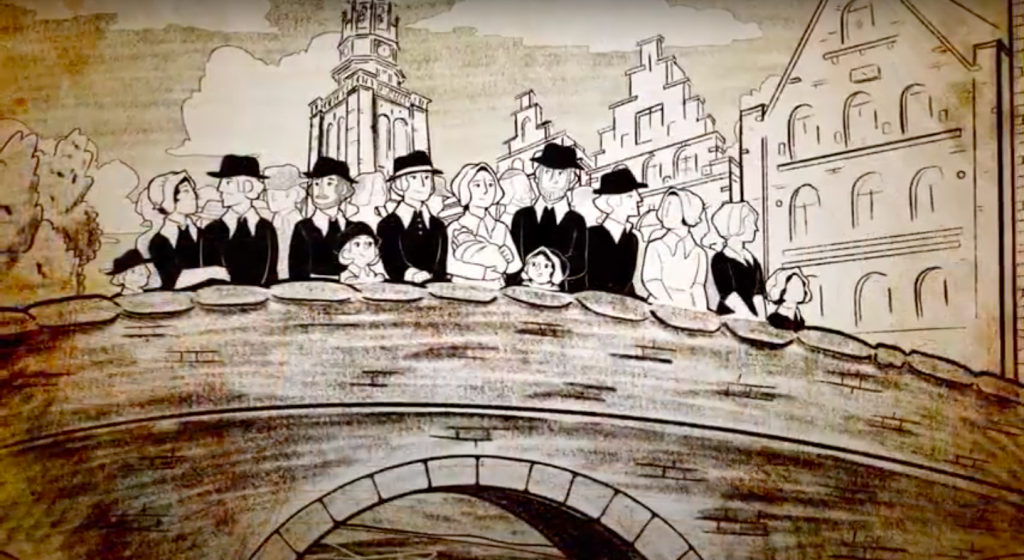Religious riots, wars and rebellion in a turbulent Europe

The Pilgrims’ lives in Leiden began to become increasingly difficult and uncertain in the years running up to 1620. They had been accepted in the city, but there were other factions who they didn’t always agree with.
Bradford recalled the religious arguments that rumbled on, which Separatist Pilgrim leader John Robinson became embroiled with:
“There [were] great troubles raised by the Arminians, who … greatly molested the whole state, [and] this city in particular [Leiden], in which was the chief university … there were daily & hot disputes in the schools there about; and as the students … were divided in their opinions … so were the 2 professors of divinity … one daily teaching for it, the other against it.”
These two professors – Episcopius and Poliander – regularly debated and argued, and Robinson was asked to advocate for Poliander so that (according to Bradford):
“When the day came, the Lord did so help him to defend the truth & foil this adversary [before a] great & public audience. And the like he did a 2 or 3 time … [which] caused many to praise God that the truth had so famous victory, so it procured him much honour & respect from those learned men & others which loved the truth.”
There was certainly a strong sense that they believed their view to be absolutely the right one – the truth – supported by their faith. Similarly strong and divided views meant that life across Europe was turbulent for many at this time. There were power struggles between nations – with Catholic countries often clashing with those that had adopted Protestantism after the Reformation.
The Pilgrims themselves had various reasons for beginning to think they may be better off moving away altogether – not to another place in Europe, but sailing across an ocean to another continent. Bradford later explained:
“After they had lived in this city about some 11 or 12 years, (which [was the] whole time of that famous truce between [the Dutch] & the Spaniards [the truce was due to end],) and [some] of them were taken away by death, & many others began to be well stricken in years … those prudent governors with [some] of the sagest members began both deeply to apprehend their present dangers, & wisely to foresee the future, & think of timely remedy … [their] removal to some other place.
Why? For a range of reasons:
“They saw & found by experience the hardness of the place & country … For many that came to them, and many more that desired to be with them, could not endure that great labour and hard fare, with other inconveniences which they underwent & were contented with.”
Bradford believed that many who wanted to join their group would rather choose prison in England over liberty in Holland. They felt that “if a better and easier place of living could be had, it would draw many, & take away these discouragements”. The hard life many of them endured was taking its toll, and their children had been forced to work extremely hard, which was driving some of them away.
“They saw their posterity would be in danger to degenerate & be corrupted”, Bradford lamented. To have a legacy where their vision for a religious community was achieved was such an important aim that they felt the need to move again – away from the immediate dangers of religious riots, wars and turbulence in Europe.
Next week: Pilgrims – preparing for another voyage…
Enjoying PilgrimAGE? Please give us some feedback via the button below!